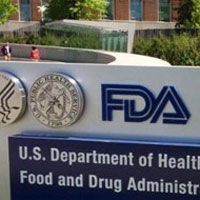Nivolumab Gets FDA Approval for Urothelial Carcinoma
The FDA has granted approval for nivolumab (Opdivo) in the treatment of urothelial carcinoma.
Nivolumab Gets FDA Approval for Urothelial Carcinoma

The FDA has granted an accelerated approval to nivolumab (Opdivo) as a treatment for patients with locally advanced unresectable or metastatic urothelial carcinoma following progression on a platinum-containing therapy, based on findings from a phase II CheckMate-275 study.
In the study, which was presented at the 2016 ESMO Annual Meeting, the objective response rate (ORR) was 19.6% for nivolumab in patients with platinum-refractory metastatic urothelial carcinoma. The complete response rate was 3%. Across the 270-patient study, the median progression-free survival (PFS) was 2.0 months and the median overall survival (OS) was 8.74 months.
The open-label study enrolled 270 patients with metastatic or unresectable urothelial carcinoma. Patients had received a platinum-based agent in the metastatic setting or were within one year of neoadjuvant/adjuvant platinum therapy. Nivolumab was administered at 3 mg/kg intravenously every 2 weeks until progression or unacceptable toxicity.
The median age of patients was 66 years and 84.1% of patients had visceral metastases at baseline. Overall, 42.2% of patients had received 1 prior therapy and 29.3% had received ≥2 prior treatment regimens in the metastatic setting. PD-L1 expression ≥1% and ≥5% was reported for 45.9% and 30.7% of patients, respectively.
After a median follow-up of 7 months, 24.4% of patients remained on therapy. The median duration of response was not yet reached, with 76.9% of responses ongoing at the time of the analysis. The median time to response was 1.9 months. Responses consisted of a complete response rate of 2.3% and a partial response rate of 17.4%. The stable disease rate was 22.6%.
In those with PD-L1 expression on ≥1% of cells (n = 122), the ORR was 23.8% with nivolumab (95% CI, 16.5-32.3). In those with PD-L1 expression on ≥5% (n = 81), the ORR was 28.4% (95% CI, 18.9-39.5). Additionally, responses were seen in patients with PD-L1-negative disease (n = 143), which was defined as PD-L1 expression on <1% of cells (ORR, 16.1%; 95% CI, 10.5-23.1).
In patients with PD-L1 expression on ≥1% of cells, the median PFS was 3.55 months and the median OS was 11.3 months. In those with PD-L1-negative tumors, the PFS was 1.87 months and the median OS was 5.95 months.
Across the full study, treatment-related adverse events (AEs) were experienced by 64.4% of patients, with 17.8% of these events being grade 3/4 in severity. Overall, 4.8% of patients discontinued therapy due to treatment-related AEs, of which 3.0% were grade 3/4 in severity. Quality-of-life, as assessed using the Global Health Status Scale, improved from baseline and remained stable over the course of the trial.
The most frequently reported all-grade AEs were fatigue (16.7%), pruritus (9.3%), diarrhea (8.9%), decreased appetite (8.1%), hypothyroidism (7.8%), nausea (7.0%), asthenia (5.9%), rash (5.9%), and pyrexia (5.6%). The most common grade 3/4 AEs were fatigue (1.9%), diarrhea (1.9%), asthenia (1.5%), and rash (1.1%).
In June 2016, the FDA granted nivolumab a breakthrough therapy designation for the treatment of patients with unresectable locally advanced or metastatic urothelial carcinoma after the failure of a platinum-containing regimen. The EMA validated a type II variation application for use of nivolumab for the same indication in September 2016.
Galsky MD, Retz M, Siefker-Radtke AO, et al. Efficacy and safety of nivolumab monotherapy in patients with metastatic urothelial cancer (mUC) who have received prior treatment: Results from the phase II CheckMate-275 study. Presented at: 2016 ESMO Congress; October 7-11, 2016; Copenhagen, Denmark. Abstract LBA31.
Key Advances in Cancer Survivorship Toxicity Management
July 15th 2022In this episode of The Vitals, Lidia Schapira, MD, FASCO, recounts highlights from the 2022 ASCO Symptoms and Survivorship track and underscores key takeaways for practitioners seeking to enhance the delivery of cancer survivorship care.


